“Chinese have China Town, Italians have Little Italy, even Jamaicans and Puerto Ricans have their own parades in Brooklyn. But whenever we talk about having something for ourselves…oh, we get accused (by blacks too) of being divisive…even racist!”
~Tariq Nasheed, director/producer of “Hidden Colors”
United We Stand
Throughout history, the phrase “United We Stand, Divided We Fall” may be the most ubiquitous motto used to inspire unity and collaborative action. So rooted in the western motif, not only has it appeared in popular songs by everyone from Public Enemy and Tupac Shakur to Glen Campbell and Taylor Swift, it is also cited in history books by the likes of Founding Father, John Dickinson. Fables from the Greek storyteller, Aesop, as well as several verses in the New Testament warn of the imminent desolation and destruction which accompanies any house / kingdom that allows itself to become divided. Patrick Henry, the fiery orator most known for his declaration which prioritized “liberty over death,” in his last public appearance in 1799, denounced the idea of the country dividing into factions. “United we stand, divided we fall. Let us not split into factions which must destroy that union upon which our existence hangs.” Following this speech he allegedly collapsed into the arms of his audience and died shortly thereafter.
Would any red-blooded American deny that the concept of individuals uniting to protect/promote their common interests is as “American” as hot dogs and apple pie?

In addition to ethnic and religious groups forming coalitions, there are also self-interest groups like the A.D.L. (Anti-Defamation League) and L.G.B.T.Q., as well as reactionary alliances like the Me Too movement, which was formed in response to a need for victims of sexual-assault to be recognized. Ethnic towns with “Little” in their name, such as Little Tokyo, Little Haifa (Jewish), and Little Haiti dot the landscape of each town and city. It seems that every group has both a designated geographical area as well as a funded organization (which is run by the people of the group) to look out for the interests of their people. Every group, that is, except one.
“The only people in the U.S. who don’t have a town of their own is the very same people who built this country!”
~Zo Williams
When Chinese and Dominican immigrants arrive to the U.S.A., it is not uncommon for them to go to “their town” to seek employment or other assistance. Even for those who do not, they are still undoubtedly inspired to see their countrymen running successful businesses in an area they can point to with pride and call their own. Blacks, on the other hand, have no such areas of opportunity.
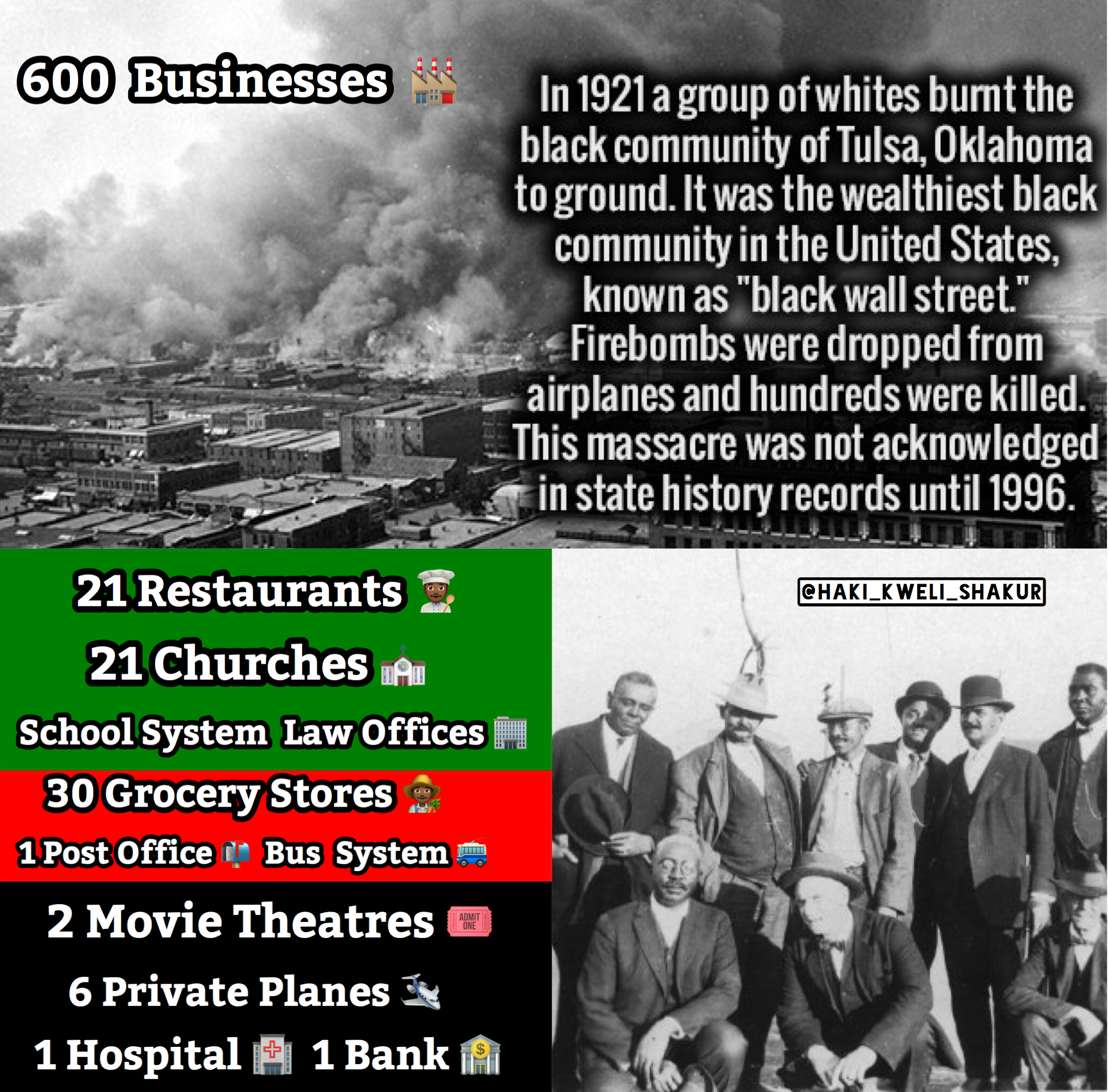
What we have are broken-down communities where we own very little, if any, of the property; and these properties are usually plagued with crime and drugs. In times past, we had thriving areas such as Black Wall Street in Tulsa Oklahoma, or Wilmington, North Carolina; but we know what happened to them. Those blacks were seen as—and treated like—terrorists. For this reason and so much more, in 2019, Black America hears the message loud and clear: It is against the law for us to form alliances for the purpose of financial gain. This is seen as a threat to the system. Sure, it’s okay for a few individuals to get some exposure and few dollars for dunking a basketball, or singing and dancing; but look at what happened to J Prince, Irv Gotti, Suge Knight, and Dame Dash when they tried to form their own music distribution company. According to Professor Griff, each man was targeted for harassment by the F.B.I. Think about it: they had their offices raided, not to mention being threatened and shook-down on the street (do you know how embarrassing that is?) like common criminals just because they wanted to form their own company to distribute music. For this, they were treated like the enemy…like terrorists.
Black Unity or Blackface
The Integration Movement of the 1960s, endorsed by Dr. Martin Luther King and other Civil Rights activists, was the final nail in the coffin of Black unity as shown by the tendency of blacks to flee the “hood” once they attain financial success. Most have no thought of acquiring property to set up their people—like other ethnic groups—but instead seek to be the only black face in an all-white community.
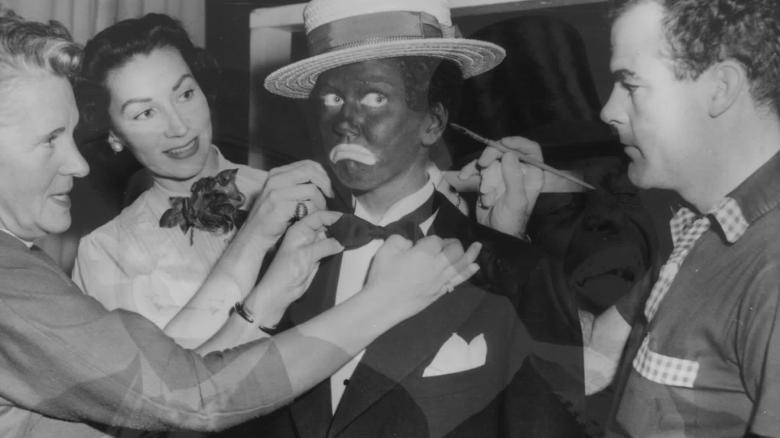
And ironically, in some cases, this is exactly what happens: they become the lone Blackface of the neighborhood. Recently, Dash Talk radio host, Zo Williams, on his program, Mansions, assembled a panel of black men to discuss why it is only American blacks who lack a uniform code when dealing with each other. Minister Abdul Malik Sayyid Muhammad (a.k.a. Tony Muhammad) explained how many blacks harbor “unresolved trauma” from being dominated in the past by someone in their circle, whether it was a family member or a neighborhood thug; and the memory of these traumatic experiences unconsciously dictates how we treat each other. As for possible solutions, Corey Holcomb, of 5150 Nation fame, suggested instituting a rite of passage for boys where a code of conduct could be implemented. Hmm, let’s consider his suggestion for a moment. A code of conduct requires discipline; and this attribute, along with self-esteem, is surely lacking among many in this day and age. Nothing illustrates this more than whatever happens to be trending at the moment on the internet. Foolishness such as the recent Popeye’s Chicken vs. Chick-fil-A fiasco. Or better yet, how about the misguided folks who, in their vain attempt to garner “likes” and have a video that goes “viral,” stooped to the level of opening ice-cream packages and, after licking the top layer, replacing the lid before returning it to the shelf. The first time I caught wind of this, the only thing I could think of was a phrase that comedian, T.K. Kirkland, likes to use: “Who raised these people?”
“Doing something stupid to get attention is a kind of euphoria…it’s the newest type of currency”
~Minister Abdul Malik Sayyid Muhammad
Who gets Reparations?
The movement called A.D.O.S., which stands for the American Descendants of Slaves, recently made a splash in the headlines with their demand for reparations. Talks about a reparations package is nothing new; however the founders of A.D.O.S., Yvette Carnell and Antonio Moore, have added one line of text on their website which has become controversial in the eyes of many: “Any black immigrant who came to the United States voluntarily after slavery would not be eligible to receive reparations.” This basically means that if your ancestors were slaves in the U.S., you’re entitled to reparations, if they weren’t, you’re not; so I’m not exactly sure why everyone is in such an uproar. That said, although this mindset might work for the reparations conversation, it doesn’t necessarily fit in quite as well when the discussion shifts to implementing a code across the board. If American Blacks received a substantial sum of money, would immigrants from the African continent and the Caribbean rejoice with their brothers and sisters? Or resent them? For me, the reparations conversation is neither here nor there for an entirely different reason. Simply put, I’m not sure it’s realistic. While perusing the A.D.O.S. website something caught my attention as I studied their movement’s aims. They are claiming justice “beginning with slavery…right up to the present.” Reading the phrase “right up to the present” made me wonder if it were possible to collect on a tab that is still running…right now?
The Era of We? Or Me?
From the false promises of “40 acres and a mule” to faulty biased loaning practices (to whatever hurdles which have been specifically aimed at blacks in the U.S.) it’s obvious that other races are “codified against us,” as Tariq Nasheed puts it.
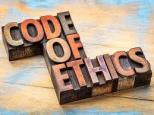
It’s true that without a code: without discipline, without a sense of self-worth—which means a love of oneself which extends to others in your group—we don’t stand a chance of righting the ship. Is it possible to implement a code for Blacks? While some leaders and talk-show hosts brainstorm on how to jar black people’s consciousness, there are occult teachers who say we are beyond forming a black nation again, claiming it was already done thousands of years ago—for at least thousands of years. “Already did it, done that, and got the t-shirt,” is how master-occultist, Bobby Hemmitt, puts it. Considering that terms like “a brother” and “a sister” have connotations of “being black” embedded within them suggests that throughout time, black people have always been the archetype of familial unity; so the very fact that this bond is being threatened may be nothing more than a sign of the times. In layman’s terms, perhaps we’re living in an age of ignorance when everything is turned upside-down. This thinking corresponds with the Hindu belief system that claims humanity is at (or near) the lowest point in the four cycles of Yugas, which is called the Kaliyuga.
Raising Our Consciousness
For some, the thought of not unifying is troubling but when we look at all the trendsetting technology from smartphones and computers to video games and drones it all favors individualism over group activity.
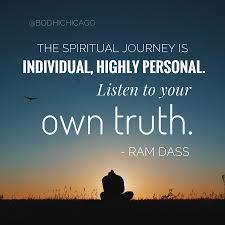
Again, is this a sign of the times that we live in? “There is no ‘we’,” explains occultist, Brother Panic, when describing how the Black Conscious movement of the 1990s operated. According to him, before it became saturated by the internet, it was the perfect system. “If the information resonated with you, you went with it, if it didn’t, you left it alone. But under no circumstance did we feel compelled to debate each other…or see ourselves as a collective.” Because of this he claims that various sects of blacks from the Nation of Islam, Moors, Hebrew Israelites, Christians, etc. were able to be seated next to each other in peace. Just this fact, in and of itself, is enough to get my attention; so let’s consider it for a moment. If there is no identity or doctrine to fuss over there can be no point of contention—i.e. no beefs. Panic went on to explain how it was understood that the journey toward the ultimate knowledge was one that had to be undertaken alone. So where does that leave us? You tell me. Would love to hear your comments on this edition of AfroAsiatic Perspectives.
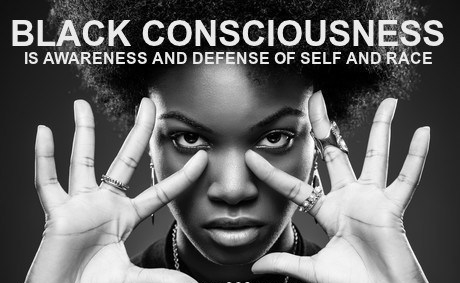
Takuan Amaru is the author of the trilogy, Gaikokujin – The Story

